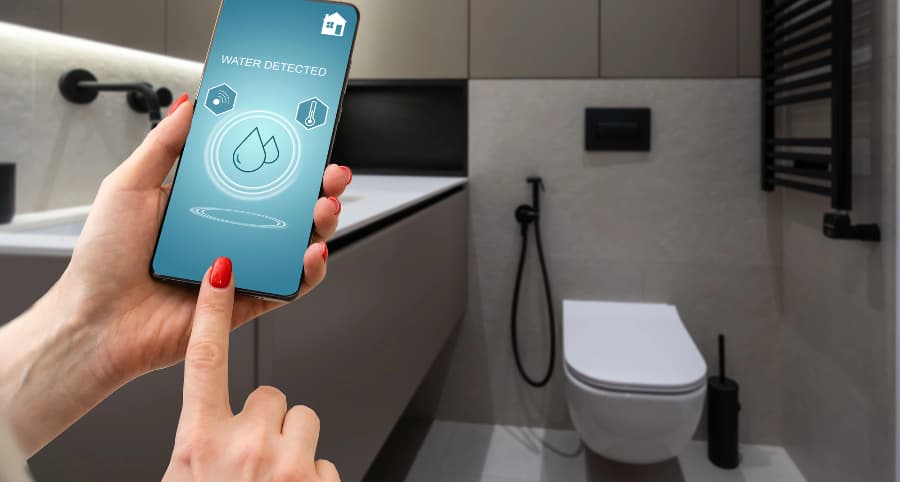How does a water sensor work and why connect one to your Syracuse smart home?

One tiny leak at your property can lead to major problems and thousands of dollars worth of damage. You have to defend against this threat; thankfully, there’s an easy way to do so. A water sensor is an effective, simple, and economical solution. See how they work and why you might incorporate water sensors into your Syracuse smart home.
How water sensors shield Syracuse homes
Water infiltrates homes in many ways, whether from a plumbing problem, weather-related incident, appliance snafu, or just human error. However it occurs, you must know at once, and this is why water sensors are important. But how do they really work?
Most water sensors are conductive and work with corresponding electrodes. When water enters the area between the electrodes, an electrical circuit is formed, triggering your alarm. You’ll also find capacitive sensors that release an electrical field. Your alarm sounds when water contacts the conductive areas of these sensors and interrupts the field. Optical sensors employing infrared LED light are an additional choice.
Get more from your water sensor
A few innovative water sensors give you even more defense as they have built-in temperature sensors. This is an exceptional tool in preventing frozen pipes. If there’s a drastic drop in temperature, you’ll know at once. Taking action before pipes burst will protect you from water infiltration and expensive repairs.
Why connect water sensors to your Syracuse smart home?
When water issues happen, you have to be warned right away. You can reach this aim by integrating water sensors into your smart home. Whether you’re there to hear the alarm or not, you’ll get an automatic notification on your cell phone. In addition, your 24/7 monitoring team will be alerted. Every moment matters in a water emergency to control the damage and disruption to your family.
Where should you place water sensors?
Any area prone to an influx of water is an ideal position for water sensors. Put them in these locations:
- Bathrooms: Place next to bathtubs or in back of toilets.
- Basements: Water often infiltrates lower floors via damaged walls or as a result of excess rain or malfunctioning sump pumps.
- Around water heaters or appliances: Any water-connected appliance could over time leak.
- Below sinks: Water sensors are perfect for identifying leaky pipes in locations hidden from view.
- Attics: Catch roof leaks early and avert costly repairs.
Request water sensors with your Vivint smart home
Give your property the complete protection it needs with Vivint’s advanced tools. Our water sensors in Syracuse connect to your Vivint cell phone app to send you automatic alerts whenever your alarm is triggered. You also enjoy incorporated temperature sensors to avert frozen pipes. Learn more about the smart home tools available in Syracuse by reaching out to (315) 971-4719 today.